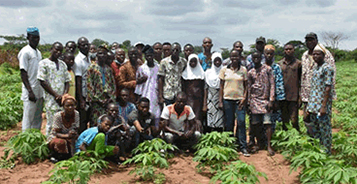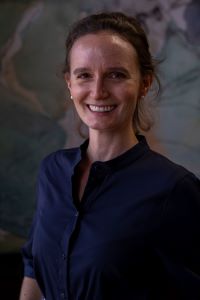by AATF Africa
Pastor Felix Afolabi, owner and founder of Afolabi Agro Divine Ventures (AADV), has been a farmer since 2014 — farming on 360 hectares of land — 300 of which he intends to set aside for growing cassava.
This season, AADV has targeted cassava planting on 90 hectares of land, and 75 hectares has been planted while another 15 hectares will be planted by end of June 2017.
AADV in collaboration with Africa Agricultural Technology Foundation (AATF) through its Cassava Mechanisation and Agro-processing Project (CAMAP) also plans to set up a cassava processing plant to provide a market for cassava farmers in Imeko, Ogun State and its environs.
Motivated by the desire to give back to the community, pastor Afolabi uses his own experience to mentor the youth. AADV has engaged youth in cassava mechanisation providing them with stems for free at inception while they provide the required labour on the field. Pastor Felix, as he is popularly known, is now actively supporting the community working closely with youth groups. “Through the intervention of AATF, the rigours involved in cassava field establishment has been greatly reduced,” said pastor Afolabi.
Over the three years AADV has bought a full set of implements needed for cassava mechanisation; ploughs, harrows, boom sprayers, planters and a root diggers. Similarly, pastor Afolabi owns tractors and bulldozers that he uses to prepare his own land and those of upcoming farmers. His latest acquisition is an additional John Deere tractor 5503 that he uses in his cassava farm.
This initiative ties in with CAMAP agenda of involving the youth. CAMAP now targets to provide training on group dynamics as well as farming as a business.
The youth farmers are organised in groups of 10 members each. Each group has 10 hectares for cassava farming. The total land area allocated to the youth by the King of Imeko for agriculture is 100 hectares. Planting on the fields started in March 2017 and so far 10 hectares have been planted courtesy of AADV giving back to the community. The direct impact on the youth is that they have now approached CAMAP to provide mechanisation on additional 15ha to be financed from their contribution. The total number of youth is 100.



















































































